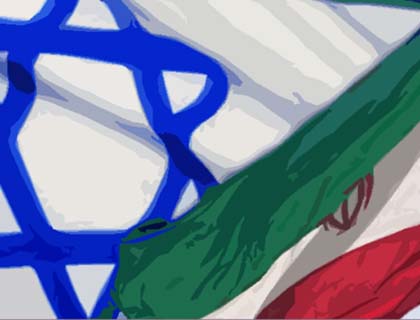Recently, the verbal controversy between Tehran and Tele Aviv has intensified to a new record. It has been a long time that Israeli officials labeled the Islamic republic as a growing potential threat to its security. Thus, trying its best to align the global view with its foreign policy to ratchet up pressure and prevent the possibility of a nuclear armed Tehran.
Indeed, there are several issues that support its position and make its concerns understandable for the international community. Tehran maintains close links with Hamas and Hezabollah militants that are in war or in condition of war with Israel. It is clear that both groups receive huge military and technical support from Iran. Missiles used in 2006 war by Hezbollah were believed to be made in Iran. Iranian leadership also does not reject the close linkage between Islamic republic and Hamas and Hezbollah. They are labeled as freedom fighters against the occupant Zionist regime.
On other hand, Tehran officials are well-known for anti-Israel rhetoric. President Mahmoud Ahmadinejad frequently has talked about complete extinction of Israel from the global map. He also raised doubt about the incident of Holocaust and said that it is in need of further investigation about its authenticity.
Such rhetoric certainly has helped Israel to draw a nightmarish picture of Islamic Republic about its security situation. It has campaigned for tightening and back-breaking global sanctions. Several resolutions have been passed in the United Nations Security Agency. Now it is campaigning to align the international community to its possible attack. But no doubt, it is a hard task.
No doubt, however, the brinkmanship between Western countries and Islamic Republic has spiraling up and resolutions are passed one after another which is sign of global anxiety about its nuclear program, but yet no body supports a military option even, the United States.
Recently, Prime Minister Benjamin Netanyahu tries to convince the Obama administration to draw a red-line for Tehran's nuclear program. In his recent visit to US, he met Republican Presidential Election nominee, Mr. Mitt Romney, which indeed will affect the US-Israel friendly relations if President Obama gets reelected. President Obama clearly said that he would heed to Israel's demand for drawing red-line for Iran's nuclear program.
President Obama like his European allies believe that there is yet a space for diplomacy. The sanctions have already caused civil dissension which puts the government under pressure to give up to costly nuclear program and clear doubts of international community through proving its sincerity regarding its non-military intentions.
Thus, western countries through diplomacy try to coerce theocratic establishment to stop its uranium enrichment program which is the very national right of the country because it has signed Non-Proliferation Treaty (NPT). Everyone who is a member to NPT can develop nuclear plants for civil purpose on condition that it should be monitored by IAEA regularly. Meanwhile, the program has changed into a national pride. People generally support it as their national right that no one can, by force, deprive the nation from having nuclear technology and energy.
There are really rare Iranians who do not support the right of his or her country to gain nuclear knowledge and use nuclear energy for civilian purposes as the officials claim. It makes no difference who would be in the power and who decides the ultimate decision in the country. What is important is this that generally Iranians support the nuclear program and deem it as national pride.
If anything has the support of such majority, perhaps at any given country within the international rules and regulation, the government would continue and does not compromise in order to strengthen its base among people, particularly democratic countries.
Same is the case in Iran now. The regime has the support of common people behind to push for the nuclear program in defiance to international community's demand to suspend the activities. Perhaps, only strategists and those who are well-aware of its destructive effects for the country may not support the program. That is not also because they maintain technology, rather due to global opposition which ends to economic and political isolation, the price, according to them, goes beyond the value of having nuclear technology.
Nobody ignores that Tehran has the right to continue its uranium enrichment program and acquire nuclear technology. This is what the international community maintains too because Iran has signed NPT of International Atomic Energy Agency (IAEA). And according to the very treaty, members of NPT have the right to establish nuclear plant for civil purposes, the thing which Tehran constantly claims.
But what has made the country to confront global opposition is due to the so-called unanswered question regarding the peacefulness of the program. IAEA observers frequently have shed doubts over the program and questioned the true intention of the country. In brief, it is dominant mistrust that sets the global community, particularly Western countries, against Islamic Republic.
Early this month, UN security agency passed another resolution against the country. Meanwhile, Israel believes that such actions cannot prevent the country to gain nuclear weapons. A nuclear Iran is not acceptable at all cost. Thus, the international community should stop it.
No doubt, it is ready to attack Iran's nuclear plants but it should have the support of key global players, particularly, the US with itself. Otherwise, it will prove too costly for it. Now it has remained vague what Israel is going to do. Does it really risk and go into a disastrous war with Iran or not?

